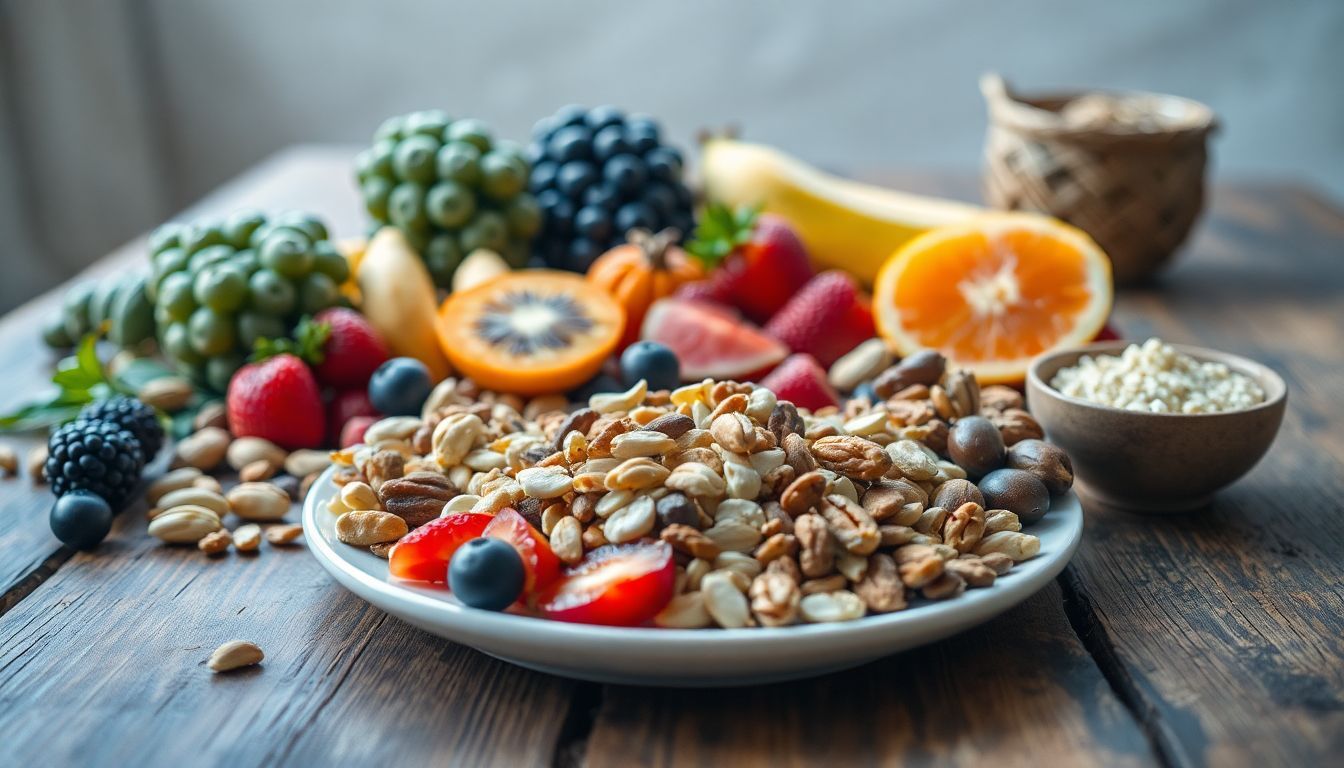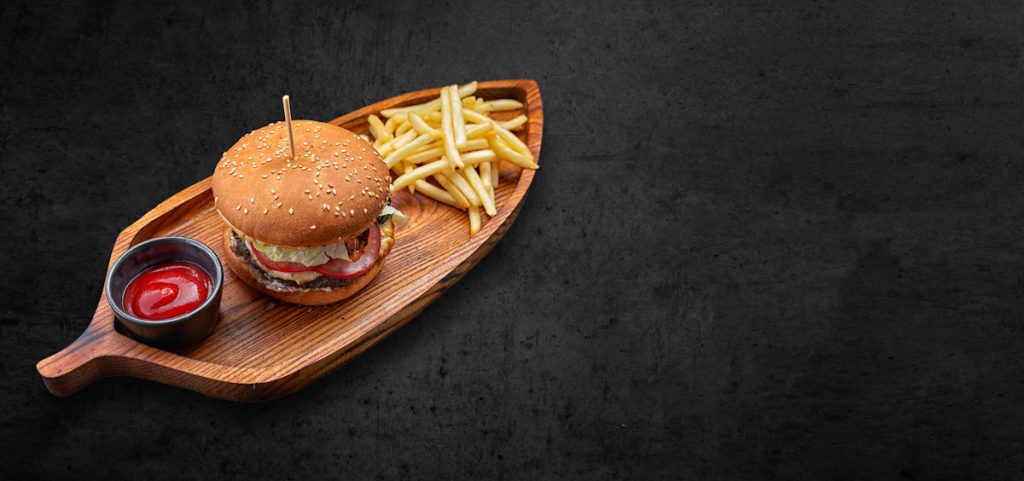Do you often wonder if your snacking habits are helping or hurting your health? Studies show that the quality of snacks matters more than how often you snack. This article will explain why nutrient-rich choices make a big difference and how timing plays a role too.
Thank you for reading this post, don't forget to subscribe!Keep reading to learn simple tips for smarter snacking!
Key Takeaways
- Snack quality matters more than frequency. Nutrient-dense options, like Greek yogurt or nuts, improve energy and overall health better than processed snacks.
- Frequent snacking makes up 20% of daily calories for most Americans. Eating nutrient-rich snacks earlier in the day helps maintain metabolism and glycemic control.
- Late-night snacking harms blood sugar and fat levels. It disrupts metabolism and raises risks of type-2 diabetes or heart disease over time.
- Studies show high-quality snacks improve cardiometabolic markers like glucose tolerance and reduce risks of prediabetes or heart issues (King’s College London).
- Unhealthy processed snacks lead to overeating without satiety, causing weight gain and impacting BMI negatively over time.
The Importance of Snack Quality
Choosing snacks wisely can affect your energy levels and overall health. Nutrient-rich snacks fuel your body, while sugary or processed foods may lead to crashes.
Nutrient-dense options vs. empty calories
Choosing snacks wisely can make a big difference in health. Nutrient-dense options fuel the body, while empty calories leave it wanting more, often leading to over-snacking.
| Key Feature | Nutrient-Dense Snacks | Empty-Calorie Snacks |
|---|---|---|
| Nutritional Value | Packed with vitamins, minerals, fiber, and protein | High in sugar, refined carbs, and unhealthy fats |
| Examples |
|
|
| Health Effects | Improves energy, supports metabolism, balances blood sugar | Causes energy crashes, weight gain, and poor health outcomes |
| Best For | Boosting health, managing hunger, fueling activity | Quick cravings, but no lasting benefits |
Snacks high in nutrients also improve blood lipid and insulin responses, making them better for long-term health. Swapping out processed foods for whole snacks can curb overeating without sacrificing taste.
Next, let’s examine how often snacking actually affects the body…
Impact on overall health and energy levels
High-quality snacks improve your body’s energy and health. Nutrient-dense foods, like Greek yogurt or peanut butter on whole-grain bread, sustain energy better than sugary drinks or cookies.
They prevent blood sugar spikes and crashes that can drain your energy. Over time, healthy snacking helps with weight management and supports heart health by improving blood lipid levels.
Late-evening snacking can harm your metabolism. It is linked to higher blood glucose and poor fat breakdown in the body. About 90% of U.S. adults get 20% of their daily calories from snacks, making food choices critical for good cardiometabolic health.
Choosing nutrient-rich options keeps you full longer—and reduces unhealthy cravings during the day.
Food quality is as important as quantity—high-quality choices protect long-term well-being.
Frequency of Snacking: Does It Matter?
How often you snack can affect your body’s energy use. Eating at certain times may also impact blood sugar and weight control.
Effects of frequent snacking on metabolism
Frequent snacking can affect metabolism in different ways. It may lead to higher energy intake, contributing about 20% of daily calories for most Americans. This constant intake might not give the body time to burn fat between meals, potentially increasing body fat over time.
Late-evening snacking is linked to poor blood glucose and lipid levels. This can raise the risk of issues like type-2 diabetes or heart disease. Choosing nutrient-dense snacks earlier in the day supports better glycemic control and overall health outcomes.

Timing of snacks and its role in health outcomes
Eating snacks late at night, especially after 9 p.m., can harm health. It disrupts metabolism and worsens blood glucose and lipid levels. This happens because longer eating periods affect the body’s ability to process food efficiently, leading to negative cardiometabolic markers.
Circadian rhythms play a big part in digestion. Eating during daylight hours aligns with natural metabolic processes, improving glycemic control and nutrient intake. Late-evening snacking or irregular timing may increase insulin resistance over time.
Making snack timing consistent boosts overall health outcomes.
Comparing Quality and Frequency of Snacking
Snack quality impacts your health more than how often you eat. Choosing nutrient-dense snacks can lead to better energy and overall wellness.
Studies on health benefits of high-quality snacks
High-quality snacks can improve health in many ways. Studies show they support better metabolism and help maintain energy levels.
- High-quality snacks, such as Greek yogurt or nuts, lead to healthier blood fat and insulin responses. These foods lower the chance of heart disease or prediabetes.
- Research from King’s College London found nutrient-dense snacks help with cardiometabolic health by improving markers like glucose tolerance.
- Eating nutrient-rich options avoids spikes in plasma glucose compared to sugar-sweetened beverages or candies, which harm glycemic control over time.
- A study by the American Society for Nutrition showed that high-quality snacks reduce added sugars and unhealthy fats in diets. This improves diet quality greatly.
- People consuming whole foods like fruits and granola experience better nutrient intake than those eating low-density lipoprotein (LDL-C)-raising processed snacks.
- High-quality snack choices lower subcutaneous fat linked to a higher BMI and cardiovascular disease risks.
- Timing matters with better snacks too—early-day intake supports healthy energy levels rather than late-evening snacking, which disrupts body mass index (BMI).
Smart snacking leads to stronger health outcomes over time!
Why frequency alone may not significantly impact health
Studies show that snack quality matters more than frequency for health outcomes. Frequent snacking, on its own, does not significantly affect BMI or energy intake if the snacks are nutritious.
For example, eating nutrient-dense foods like Greek yogurt or fiber-rich options helps maintain better glycemic control and supports a healthy diet.
Caloric intake and timing of snacks also play minor roles in changes to body mass index. Research from King’s College London highlights no direct link between frequent eating occasions and cardiometabolic markers—proving that food quality outweighs frequency.
A high-quality snack positively impacts your gut microbiome without needing constant consumption.
Healthy Snacking Ideas
Choose snacks that fuel your body and taste good. Focus on simple, nutrient-packed options to keep you satisfied.
Examples of nutrient-rich snacks
Nutrient-rich snacks can improve your energy and health. They also help maintain a balanced diet when chosen wisely.
- Carrots with hummus provide fiber, vitamins, and healthy fats. This option is low-calorie but filling.
- Greek yogurt with berries offers protein and antioxidants. It helps support intestinal microbiota and glycemic control.
- Sliced apples with peanut butter give a mix of natural sugars, fiber, and healthy fats. Be mindful of the serving size to avoid excess caloric intake.
- A handful of nuts or seeds delivers protein, omega-3s, and key nutrients like magnesium. These make great snack options for late-evening snacking or busy schedules.
- Fresh fruit such as bananas or oranges gives quick energy through natural sugars without added calories found in processed foods.
- Popcorn mixed with nuts creates a crunchy snack packed with fiber and heart-healthy fats—perfect for emotional eaters avoiding hyperpalatable processed foods.
- Raw vegetables like cucumbers or bell peppers with guacamole combine hydration, vitamins, and flavorful healthy fats that fit into any dietary guideline.
Healthy snacking patterns reduce overeating risks in an obesogenic environment… Let’s now explore how snacking frequency affects metabolism!
Balancing taste with health benefits
Healthy snacks can taste good and be nutritious. Peanut butter on whole-grain toast gives protein, fiber, and a satisfying flavor. Greek yogurt with fresh fruit adds calcium, vitamins, and natural sweetness without extra sugar.
Choosing nutrient-dense foods helps cravings while supporting health goals. Roasted chickpeas or spiced nuts offer crunch but also provide healthy fats and energy intake control. Mixing textures and flavors keeps snacking enjoyable without relying on unhealthy foods like chips or candy bars.

Potential Pitfalls of Snacking
Snacking too often can lead to eating more calories than your body needs, which may affect weight and health. Choosing processed or sugary foods can lower diet quality and impact energy levels over time.
Overeating due to constant snacking
Constant snacking can lead to overeating and weight gain. About 25% of Americans snack several times a day, which increases their caloric intake. Non-hungry snacking, often caused by stress or boredom, adds unnecessary calories.
Children get about 27% of their daily energy intake from snacks, but many options lack nutrients.
Low-quality foods like chips or candy make it worse. They are calorie-heavy yet fail to satisfy hunger for long. This creates a cycle of eating more without feeling full. Overeating impacts overall health and can raise body mass index (BMI).
Relying on processed or low-quality foods
Processed snacks often lack nutrients your body needs. They can be full of empty calories, unhealthy fats, and added sugars. Over time, eating these foods affects blood glucose levels and raises bad cholesterol.
This increases the risk of poor cardiometabolic health.
Late-evening snacking on low-quality items worsens health outcomes. Studies link it to weight gain and higher caloric intake. Relying on such snacks may also lead to energy crashes during the day.
Opt for nutrient-dense snacks instead—this shift supports better metabolism and overall well-being.
Making Snacking Work for You
Snacking can fit into your life without harming health goals. Choose foods that boost energy and meet daily nutrient needs.
Personalizing snack choices based on lifestyle
Active lifestyles may call for energy-packed snacks. Peanut butter on whole-grain toast or a banana with Greek yogurt offers protein and fiber. These fuel workouts and keep hunger in check between meals.
Late-evening snacking often leads to higher caloric intake. Swap chips for nutrient-dense options like nuts or carrot sticks during daytime snack windows. Aim to align snack timing with physical activity and meal skipping patterns… Next, find inspiration with examples of healthy snack ideas!
Incorporating snacks into a balanced diet
Healthy snacks can boost nutrient intake without increasing caloric intake too much. Choosing foods like raw vegetables, fresh fruits, peanut butter, and low-sugar yogurt supports a well-balanced diet.
The Dietary Guidelines for Americans 2020-2025 recommend nutrient-dense snacks to improve energy levels and health outcomes.
Mindful eating helps prevent overeating during snacking occasions. Opting for high-quality snacks instead of processed options makes it easier to manage weight and maintain cardiometabolic health.
Finding simple snack ideas that fit your lifestyle can keep you energized throughout the day….
Adding Nutritious Soups to Your Snack Options
Nutritious soups make a great snack. They offer warmth, flavor, and valuable nutrients. Choose options made with fiber-rich vegetables like carrots, spinach, or lentils. Add lean proteins such as chicken or beans to boost energy intake without overeating.
Soups can help improve diet quality while keeping you full longer.
Opt for low-sodium broths to support cardiometabolic health and glycemic control. A small serving of miso soup or tomato basil soup is light yet satisfying. Pair it with whole-grain crackers for added texture and nutrient intake during eating occasions like late-evening snacking or between meals.
Conclusion
Snack quality matters more than how often you snack. Picking nutrient-rich options boosts your health and energy levels. Frequent snacking only helps when paired with healthy choices.
Skip late-night snacks—they can harm blood sugar and fat levels. Choose wisely, and snacks can work for your body, not against it!
Discover how to elevate your snacking game with delicious and nutritious options by exploring our guide on soup-based snacks.
